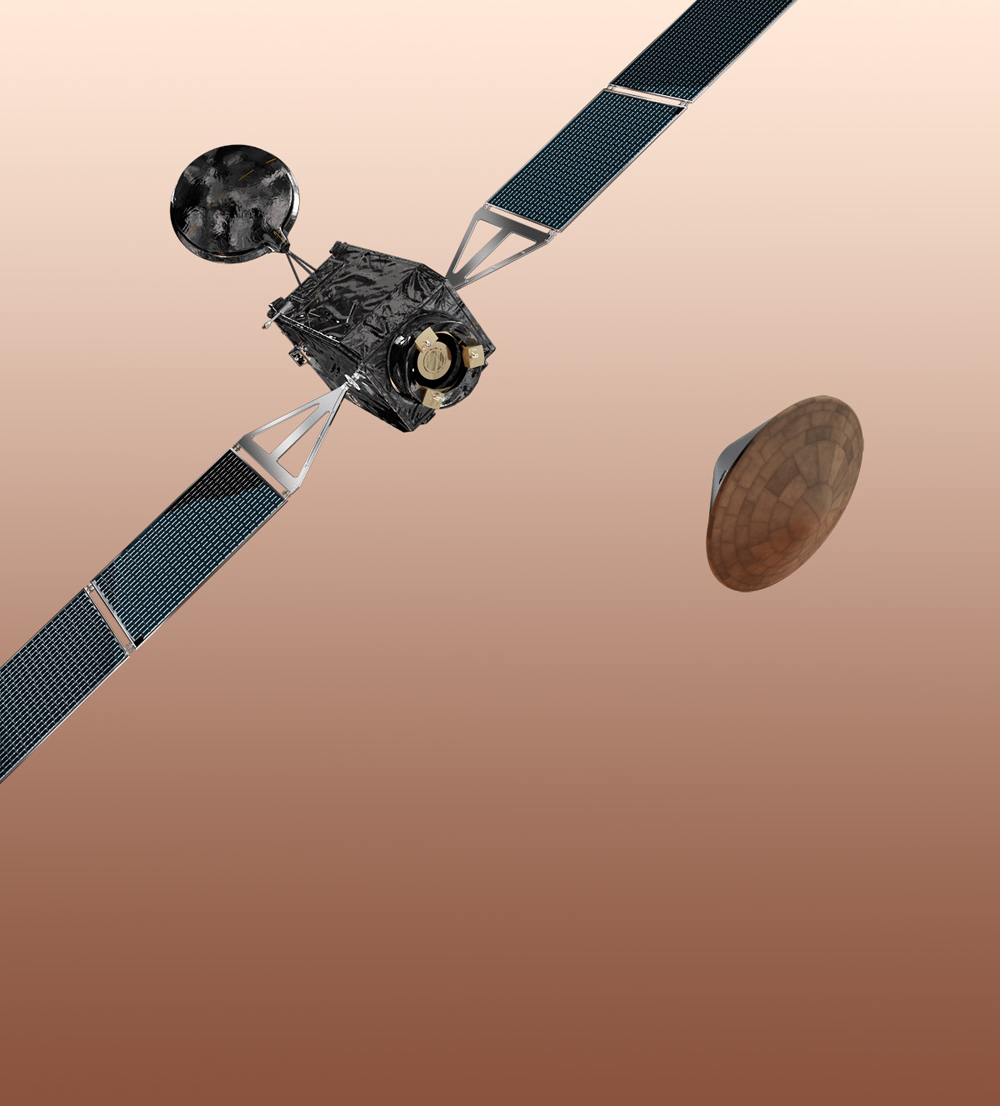Is NASA Pulling Out of Europe's Mars Exploration Missions?

The blight of space exploration is also the lifeblood of space exploration: government funding. And today, it seems that concerns for the future financial landscape may have scuppered another international collaboration in space.
The BBC is reporting that the U.S. space agency is close to officially announcing its intention to step away from the European-led ExoMars mission that was scheduled for a (delayed) 2016 and 2018 launch to the Red Planet.
SCIENCE CHANNEL: Does Mars Methane Equal Life?
Composed of a Mars satellite and drilling rover, the combo would make invaluable measurements of atmospheric methane — a potential sign of microbial life on the surface — and drill deep into the ground, accessing a subterranean environment no robot has ever touched before. Of course, the prime objective is to search for the biosignatures of Martian life, but the whole kit would also understand how much water is locked just below the surface and help to assess the Mars environment for future manned missions.
Unfortunately, it looks like there's bad news on the horizon; the European Space Agency's (ESA) key partner may be pulling out.
"The Americans have indicated that the possibility of them participating is now low — very low. It's highly unlikely," said Alvaro Gimenez, ESA's director of science. "They are interested, they know it's a very good option for them — but they have difficulties putting these missions in the budget."
ANALYSIS: Mars-bound Rover Feels Wrath of Sun's Radiation
Get the Space.com Newsletter
Breaking space news, the latest updates on rocket launches, skywatching events and more!
This news comes ahead of President Obama's announcement of next year's budget that will undoubtedly see NASA in its cost-cutting cross hairs. Needless to say, no one is optimistic.
As discussed by Keith Cowing at NASAWatch.com: "Details of the FY 2013 NASA budget are starting to trickle out. One of the most prominent changes will be the substantial cut to SMD (Science Mission Directorate) — specifically its future Mars exploration program. Sources report cuts of 50-60 percent in this area."
Although a NASA step-down has yet to be confirmed, ESA has begun lobbying the Russian space agency Roscosmos for help.
NASA's involvement in ExoMars was to be critical. Instrumentation and a communications package was to be provided for the satellite, plus a number of instruments for the rover. NASA would also be providing the rockets needed to get the mission into space. Oh yes, plus the decent system required to land the one ton rover on the surface.
It is now hoped Russia might be able to step in where NASA left off. Unfortunately, this decision will raise a few eyebrows considering Russia's recent bad luck with getting stuff into space and keeping it there. Also, Roscosmos' track record with getting stuff to Mars is abysmal.
PHOTOS: Weirdest Mars Craters (by HiRISE)
Even if Russia does decide to step in, the ExoMars mission will have to be less ambitious than it was. For starters, Roscosmos doesn't have the necessary skills and technology for such a big mission, skills that NASA has been able to refine after three (soon to be four) successful rover landings and a series of landers. Also, the additional cost ESA will have to absorb means the European ExoMars budget cap of one billion Euros (1.3 billion dollars) may be too restrictive.
As the ExoMars mission hangs by a thread, where does this leave future international collaboration in space?
It's a strange irony that to afford the expense of space exploration, international collaboration is often sought after — spreading the cost across several international partners means the biggest space missions may be accomplished. And yet in times of austerity, national budgets balk at the prospect of investing in international projects like ExoMars.
It looks like this is one great idea that will continue to struggle to make its way to the launchpad.
This article was provided by Discovery News.
Join our Space Forums to keep talking space on the latest missions, night sky and more! And if you have a news tip, correction or comment, let us know at: community@space.com.
Ian O'Neill is a media relations specialist at NASA's Jet Propulsion Laboratory (JPL) in Southern California. Prior to joining JPL, he served as editor for the Astronomical Society of the Pacific‘s Mercury magazine and Mercury Online and contributed articles to a number of other publications, including Space.com, Space.com, Live Science, HISTORY.com, Scientific American. Ian holds a Ph.D in solar physics and a master's degree in planetary and space physics.
